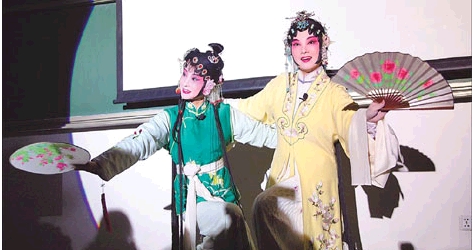 Students and teachers at Peking University are committed to keeping Kunqu Opera, one of the world's oldest and most refined art forms, Han Bingbin reports.
Students and teachers at Peking University are committed to keeping Kunqu Opera, one of the world's oldest and most refined art forms, Han Bingbin reports.
Crowned as the mother to many forms of Chinese opera, Kunqu Opera has been refined by musicians and literati through hundreds of years until it is now considered one of the world's most precise art forms. However, like many old art forms, the opera style is being crowded out by modern artistic tastes. Experts and teachers have realized that the best way to preserve and promote Kunqu Opera is to rely on the vitality of youth and teach and perform it at colleges.
Peking University launched its Kunqu Opera Inheritance Project in 2009, aiming to spread the word among students within five years through performances, lectures and workshops.
The college also opened a now popular undergraduate course that invites academics to teach the history and aesthetics of the opera form and experienced performers to help students to appreciate the acting in an art form that originated in Kunshan, near Suzhou in Jiangsu province, 2,000 years ago and developed in the early Ming Dynasty (1368-1644).
The Peking University project's biggest achievement was its April 7 performance of the classic Peony Pavilion, which Pai Hsien-yung, a renowned Taiwan novelist dedicated to promoting Kunqu Opera around the world, praised as "as good as a professional performance".





